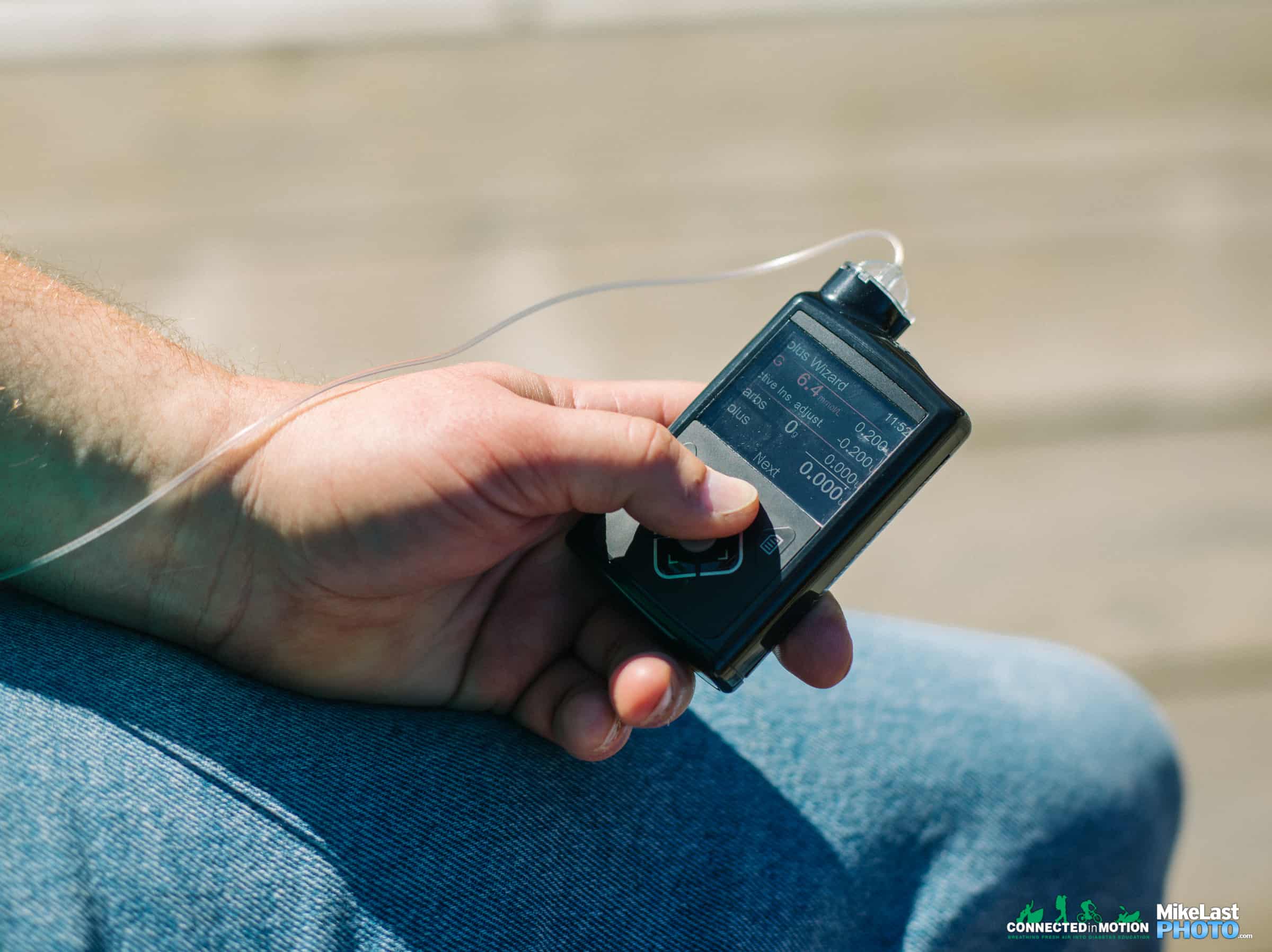On November 27, 2018, the CBC published an article entitled “Insulin pumps linked to more reports of injury and death than any other medical device, records show” (posted online Nov. 27, 2018, as part of the “The Implant File” series). As a community, we recognized that this article, as part of the CBC’s investigation with Radio-Canada, The Toronto Star, and the International Consortium of Investigative Journalists into the medical-device industry, fell short of its own standards for accuracy and balance.
We felt it was important to address the article, its discrepancies, and to provide some community-driven insight into the use of insulin pumps within Canada. This type of reflection is important as the article potentially jeopardizes imminent approvals of new medical device technologies that could prove beneficial to improve health outcomes for Canadians living with Type 1 diabetes.
Several members of the diabetes community have voiced their opinions to the CBC and the Minister of Health and have provided CIM with copy from their letter. We have used sections of that letter to provide the response below. Thank you to everyone who has been making their voices heard.
Note: CIM receives funding from some insulin pump companies and many of our community members rely on insulin pumps to care for their diabetes. As such, we may be biased towards supporting insulin pumping as a tool for diabetes management, although we have made effort for this post to remain objective. We still thought this article was important.
REFERENCED MATERIALS & ADDITIONAL RESOURCES
Original CBC Article: Insulin pumps linked to more reports of injury and death than any other medical device, records show
Secondary CBC Article: Health Minister vows to strengthen oversight of medical devices after investigation reveals problems
Resource: Searchable Health Canada Reports (search: PUMP; INFUSION; INSULIN)
Resource: Quality of Life study referenced in CBC article: Relative effectiveness of insulin pump treatment over multiple daily injections and structured education during flexible intensive insulin treatment for type 1 diabetes: cluster randomized trial
THE CHALLENGES
The report does not directly compare the risks of insulin pump technology to the alternative, multiple daily injections (MDI), leaving the reader with a skewed view of the risks of living with Type 1 diabetes in general.
Overall, the report, titled “Insulin pumps linked to more reports of injury and death than any other medical device, records show” (posted online Nov. 27, 2018, as part of the “The Implant File” series), creates unnecessary fear for persons affected by Type 1 diabetes, who must choose either insulin pump therapy or multiple daily injections (MDI) to survive.
One of the major challenges of this article is that CBC journalists built their case without acknowledging this reality. The balance of the report, which includes citing allegations in two legal cases leveled against a single company, Medtronic Canada, appears to be weighted in favour of presenting evidence that suggests there’s widespread malpractice in the medical-device industry.
It is clear that the reporters for this story write exclusively from the perspective of healthy persons, who do not have to contend with chronic illness, and therefore remain insensitive to the necessities of life in the Type 1 diabetes community.

THE REALITIES
Conclusive statements were made within the article surrounding injuries and deaths in the diabetes community based on inconclusive and often incomplete evidence. We are devastated at all losses in the Type 1 diabetes community and ask that reporting on these incidents be respectful of both the community and the families involved. Avoid drawing conclusions without investigating the myriad of factors that impact BG levels, insulin management, and dosing decisions each and every minute of every day.
The report cites 103 incidents involving death related to insulin pumps. It should be noted that the large majority of these include incidents that were unrelated to insulin pump use, including several patients who owned an insulin pump, but were not wearing it at the time of death. A small number of incidents were directly related to pump use (several kinked cannulas causing hyperglycemia and eventually, DKA; unintended suspension of insulin delivery; etc)
Most injuries involve episodes of hyperglycemia. According to the Diabetes Canada Clinical Guidelines, in-hospital hyperglycemia is defined as any glucose value >7.8 mmol/L. We are working on finding out what Health Canada uses in its reports of hyperglycemia for pump companies.
Every single pump user in Canada has also used Multiple Daily Injections over the years, providing plenty of lived experience with both therapies. Living with this chronic illness requires round-the-clock vigilance, constant adjustments to dosing, and a willingness to adapt to changes in medical science and technology. Many have chosen to use the pump and fast-acting insulin to stabilize regulation of blood-glucose levels, and to better their own lives.
The integrity of CBC’s reporting is questionable with its apparent blind acceptance of adverse events reported by Health Canada in relation to medical devices. There isn’t enough information available to determine whether an incident was in any way product related; user error, or simply poor decision-making on the part of the user, is possible. CBC and its investigation partners have made the uninformed assumption – and give the impression – that these events are due solely to a product malfunction.
The figures on which the news story is pegged, claim that insulin pumps may have contributed to 103 deaths and more than 1,900 injuries over the last 10 years. This is hardly conclusive, or specific enough to make any claim of accuracy to justify the premise of the story. When MDI is the only other choice to deliver insulin, we would have expected comparative statistics using this method to back up CBC’s claims about the insulin pump.
In fact, we encourage readers to take some time to read through the incident report database where injuries include reports of hyperglycemia (in a hospital, according to Diabetes Canada, this means over 7.8 mmol/L) and deaths unrelated to diabetes, but in community members who were pump users. This extra information may lead the reader to quite different conclusions than when presented only with the statistics outlined in the CBC article.
We do agree with parts of the report, particularly the comments paraphrased and quoted by Dr. Peter Senior, the Edmonton-based endocrinologist. Dr. Senior states “The misconception is that [pumps] will think for you. They will make the decisions. But the pump is just a dumb device that will do what you ask it to do. If you forget to ask it to do important things, or you ask it to do wrong things, then problems can arise.” This is equally true in both situations – using MDI or an insulin pump – that insulin dosing must be accompanied by knowledge of individual health needs, willingness to adapt to updates in clinical guidelines, working with doctors and certified diabetes educators, and keeping up with advances in technology. Managing Type 1 diabetes is about quality of life. It is time-consuming, often emotionally and financially stressful, but ultimately it is the responsibility of each person who is afflicted with it to decide on the best choices for their own health.

THE RISKS OF THE REPORT
Accessing the best diabetes care is an onerous and individual burden. This article has resulted in the Health Minister promising to strengthen oversight of medical devices including insulin pumps. We hope that this vow does not translate into increased burden on patients and further inaccessibility to technology and devices that return quality of life to many individuals within the community.
The report misrepresents life with diabetes. Although we understand its attempt to be read by the average Canadian, describing the insulin pump as a ‘convenient’ tool for management as well as an ‘artificial pancreas’ do a disservice to the community in making it seem like an unneeded luxury and undermines efforts to make this technology more widely available.
To note, an earlier version of the CBC article (published November 27) cited a study demonstrating no improved quality of life for insulin pump users versus people on injections. This has since been corrected. As cited directly from the study: “Both groups showed improved quality of life benefits, but those using pumps showed additional albeit modest benefits in quality of life, reported fewer restrictions in diet and daily hassles in the diabetes-specific quality of life scale, and greater treatment satisfaction”
Contrary to an earlier version of the CBC story that was originally posted online Nov. 27 (and subsequently updated), the insulin pump is not an “artificial pancreas.” Insulin delivery is only one part of the equation for successful dosing. Additionally, there must be a way to accurately measure blood-glucose levels. Recent developments and approvals of such medical devices over the last few years by Health Canada and provincial formularies, particularly in the form of flash or continuous glucose monitoring (CGM) devices, have improved overall safety for diabetics.
We are hopeful that CBC’s reporting and the pressure it claims its reporting has put on the federal Health Minister does not cause further delay to accessibility of technologies that are already proven, and will give Canadians living with Type 1 diabetes more resources to manage this disease.
Together with better blood-glucose monitoring systems, the insulin pump is a prime example of a medical device that is constantly being improved, and even reinvented, by companies that are driven as much by profits, as they are guided by medical research and market demand. By isolating only injuries and deaths allegedly linked to the insulin pumps made by one of many companies, and failing to provide any significant comparison, CBC does a disservice to those of us who depend on continued development of these technologies to survive.
Not unlike the contentious federal Disability Tax Credit, which many in the Type 1 diabetes community rely on for some relief from the individual financial burden this disease puts on us, the Health Minister’s pledge to create more oversight of an already highly regulated process could well prove detrimental to access of the anticipated technology. In the case of the DTC, the spirit of the policy is violated by the difficult criteria, often subjectively applied, that is imposed by the Canada Revenue Agency on eligibility. Transparency, by contrast, would be welcomed and build better understanding of the policy framework that attempts to safeguard public health, balance liability and still provide access.

THE CALL TO ACTION
Share your reactions to the article with #pumpingfacts
Write to the Health Minister, your local MP, the CBC, your local newspaper or on your own blog with a response. Share your own experiences and voice.
Share this article and keep the facts straight. Be a critical thinker and dig deep into the information you’re presented with.
As a community, we worry that the article published by CBC may have far-reaching consequences in both the personal, professional, and financial realms. Misinformation that instills a sense of fear of technology can impact public perception, and create a ripple effect that affects funding and support for medical device technology.
We ask that you make your voices heard – Don’t let this article become the narrative that may impact decision makers, industry, and, worst of all, other people living with Type 1 diabetes around the use of insulin pump technology. Please feel free to use the information above to craft your own response and share it far and wide. Whether you’re sending a letter to your own local newspaper, posting on your personal blog, or sharing to social media, we encourage you to think critically when reviewing the article, to dig deep into the facts, and to share your own personal experience.
Use the hashtag #pumpingfacts when sharing your responses, stories, and this article.

Contacts:
Health Minister, The Honourable Ginette Petitpas Taylor: Ginette.PetitpasTaylor@parl.gc.ca
CBC Ombudsman, Esther Enkin: Ombudsman@cbc.ca

Article Contributor – Brad Lee
Special thanks to community member, Brad Lee, for his insight in bringing this article to life. Brad is a recovering journalist and avid fly angler who’s as happy chasing fish, in rivers or by Hobie kayak, as he is introducing others to the sport. Nearly twenty years on, he’s still learning to live well with Type 1 diabetes. He enjoys sharing good food with friends, cooking, traveling and exploring Ontario and the world.




